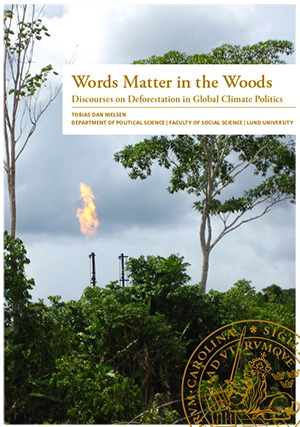This dissertation applies argumentative discourse analysis to explore the role of tropical deforestation in global climate politics. The empirical focus is on the negotiations on a UN-based incentive-based mechanism called REDD+, which stands for Reducing Emissions from Deforestation and forest Degradation. This mechanism has over the past ten years grown to become a key element of the - UN Framework Convention on Climate Change (UNFCCC), as well as omnipresent in global forest governance. Based on data from UNFCCC official documents, my observations at six UNFCCC Conference of Parties (COPs) and intercessional-meetings, 38 semi-structured interviews, and a wide range of secondary material, the research identifies REDD+ as dominated by an ecologi-cal modernisation discourse and a more marginalised civic environmental dis-course. My results further illustrate how the two dominant discourses permeate into different practices in REDD+, e.g. how forest carbon monitoring practices and operationalisation of social safeguards both contribute to and are embed-ded in the overarching discursive debates on REDD+. Moreover, analysing the emergence of a third discourse, the integrated landscape approach, this thesis argues that while the new discourse may have gained credibility and legitimacy, it has yet to impose its logics and rationales on REDD+ in a profound way.
Åtkomstkoder och digitalt tilläggsmaterial garanteras inte med begagnade böcker





















